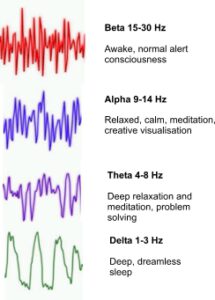Menu
Clinical Hypnotherapy
What is Hypnotherapy?
Hypnosis is a social interaction in which one person will respond to suggestions made by another person (the hypnotist) for the purpose of generating imaginative experiences that involve changes in perception, memory as well as the voluntary control of action.
Here’a what a delegate said recently about her first encounter with NLP World’s Hypnosis Practitioner training:
What Will Hypnotherapy Do For You?
Hypnosis allows you to understand how the unconscious mind really works thereby allowing you to finally understand why some important messages get through and others don’t. You are also able to learn verbal and non-verbal suggestion so that you can better control and direct conversations.
Hypnosis also effectively enables you to induce deep mind states using hypnotic inductions that allow you to access the power of yours and your client’s unconscious minds. You can also successfully structure hypnotic suggestions in order to issue direct commands to be uses in meetings, business and for clients.
Where Can You Use It?
I use it in everyday life, with clients of all kinds, plus my corporate trainings, (I just change the title to “advanced visualisation” in case people are scared of the word hypnosis).
Where Does Hypnotherapy Come From?
Hypnosis dates back to ancient Greece in the temples of Aesculapius, the Greek god of medicine. In the temples the priests would utter reassurances and advice to sleeping patients. The patients interpreted these suggestions as the gods speaking to them.
It is however Franz Anton Mesmer’s belief that disease was caused by imbalances by a physical force that was named animal magnetism that gave rise to the modern practice of hypnosis. He also believed that the diseased could be cured by the redistribution of this magnetic field a process that resulted in certain epileptic seizures that he named crises. Although his theory was later discredited in 1784 by a French royal commission chaired by Benjamin Franklin, Mesmer’s practices lived on. Mesmer’s theory received a major boost when one of his followers, the Marquis de Pusyegur magnetised a shepherd at his estate. The result was that the young shepherd was able to respond to certain commands when in a sleep like state and had no recollection of what he had done upon awakening.
In the 19th century James Esdaile and John Elliotson both reported having used the technique to perform surgery as an anaesthetic although chloroform and ether would later prove to be reliable in this regard. The first major study on hypnosis did not however come until 1923 when P.C Young completed a doctoral dissertation on the subject at Harvard following initial experiments that were conducted by Clark Hull in 1920 in Wisconsin. Further experiments would be conducted in the 1930’s at Yale. Since then, hypnosis has been a psychological method of treatment for certain illnesses with some success.
Can Hypnotherapy Work On You?
There are major differences in how individuals will react to hypnosis and the success of the hypnosis session has little to do with the skills of the hypnotist and more to do with the subject’s capacity for experiencing hypnosis. It is however important to note that very few people fall under the category of those who cannot be hypnotised and another very few fall under the category of those with the highest responsiveness to hypnosis. The state of mind of the subject is a major determining factor as to their ability to respond to hypnosis.
Although we are not allowed to claim that hypnosis is a cure for diseases, the relaxation that a person attains while under hypnosis can alleviate pain and discomfort thereby contributing to the overall good health of the person.
Your Hypnotherapy Training
You will, of course, be very well versed in how language works through your pre-study and the NLP course itself. Therefore the hypnosis part of the NLP training package should come very easy to you. What we will show you via the hypnosis section, is how to distinguish different relaxation states (also called trance states), how to induce mild to deep trance states and how to use hypnosis for health and healing. A incredible tool!
Here is a link for the basic Hypnotherapy Training Page
What is Clinical Hypnotherapy?
Clinical Hypnotherapy is the process and practise of working with more advanced thinking and practical applications of Clinical Hypnosis. For instance pain control and allergies. You will be learning about the different brain wave states such as Beta, Alpha, Theta and Delta. We show you regression techniques and more Ericksonian Hypnotherapy. We also show you how to work with deep trauma and phobias.

You will be able to gain certification through AIP as a clinical Hypnotherapist. We do not claim to be Psychologists or work in a similar way. Yes, you can practise Hypnotherapy in SA – you just can’t say you are curing anything and make it clear you work on a client outcome based way. In other words, you are assisting your client to find their own solutions, not diagnosing and prescribing. That is the work of Psychologists and they are trained in those areas that we are not.
How Can I Get My Clinical Hypnotherapy Training?
The Clinical Hypnotherapy Training comes as part of the NLP Master Practitioner Program. All of your NLP training counts towards the clinical hypnosis accreditation. Working with submodalities, The Milton Model, Meta Model, Presuppositions, Quantum Linguistics, Rapport, Sensory Awareness, Perceptual Positions, anchoring, Values (the list goes on) all count towards your certificate.
For your Master Practitioner Certification, click here.



